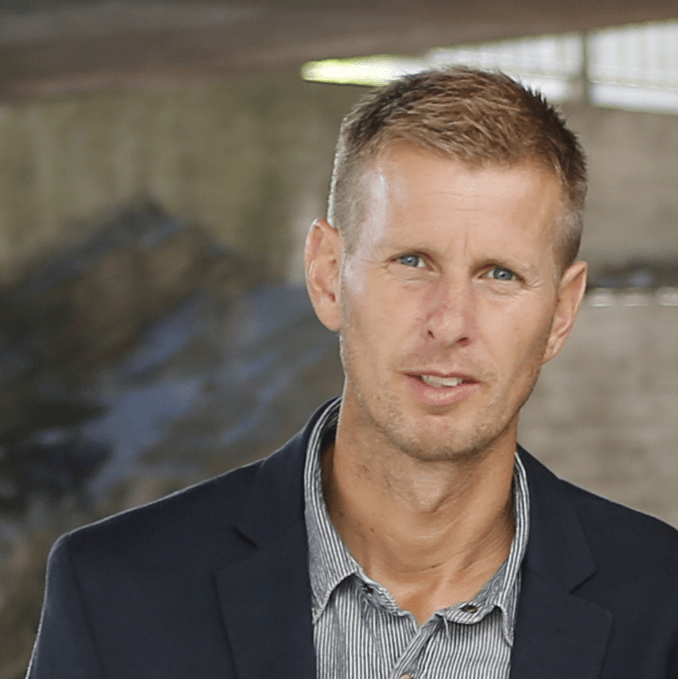To see or not to see, that is the question! Hamlet’s soliloquy really addresses a deeper and more existential perspective; to be or not to be. Living or dying. But for an entrepreneur the question about seeing is almost equally important. If you cannot see, chances are that your efforts are fruitless and dying. And the entrepreneur probably feels the same as his project.
Paul writes about the gospel mystery when he says,
“what no eye has seen, what no ear has heard and what no human mind has conceived”
1 Cor. 2:9
Yet it is often the very same description of an entrepreneurial initiative. Someone has seen what the future could be! Seeing is really about identifying possibilities and opportunities that has not been identified. Yet.
Sometimes I have met groups of pioneers who struggle in their efforts to start something new or bring something to a new location. Often their struggle is linked to the seeing part: They are in love with the concept they are working on, but they have not considered the market. Will people there think there is a need for this new thing?
Most times Christian initiatives can be defined as good, appropriate, even necessary. But if the pioneer is new to the location and people don’t feel the need themselves, you are in for a long and difficult path. Chances are you are setting yourself up for failure.
We are living through the covid-19 crisis. You don’t have to be extraordinarily smart to see that people will need face masks. But what will their need be after the crisis is over? Now, that will take a different form for seeing! Call it a hunch or intuition. Or better; a word from the Lord. Paul continues to say
“the things God has prepared for those who love him, these are the things God has revealed to us by his Spirit”
2 Cor. 2:9-10
Entrepreneurs are often thought of as risk takers. They may be willing to risk their career and reputation, or at least their financial security. Well, that’s what people may think, who have not seen what the entrepreneurs have seen. The risk seems smaller to the person who has seen what the future can be.
The risk also seems a lot smaller if you know the commitment in the entrepreneur’s heart. They are most often highly motivated, and their motivation comes from within. They are seldom tempted to give up, and their ability to bounce back when problems arise is remarkable. Call it hardheaded, or stubborn; their inner motivation keeps propelling them forward.
So, what does it really take to be an entrepreneur? Seeing the opportunity and knowing the market, is like having a sixth sense to understand the future. Much of this is personality. Even the self-motivation part. Can I then learn the trade of an entrepreneur?
Obedience to God’s word can put you in the right place with the right destination. I would like to suggest a few things we can learn to improve our success rate as entrepreneurs.
Agility is an ability to position yourself efficiently. It involves abilities like balance, coordination, reflexes and endurance. Being flexible will assist your entrepreneurial efforts. Maybe the outcome will look somewhat different than the original plan? Most likely!
Having an ability to network are crucial for your entrepreneurial efforts. I like to call it traction. My daughter had a Vespa scooter. When it was parked, the back wheel was not touching the road surface. I could start it, twist the throttle to full speed, and the wheel would be spinning. But without traction with the asphalt there would be no movement forward. In the same way: all your prayers, devotional life and the “engine” of a great concept will not move forward unless you have traction. What is traction? It is relationship with relevant stakeholders.
If you have a good idea, make sure you get many helpers to carry it! Having basic leadership skills will help you attract people that will help you in your project. My friend Doug Easterday explained it well: If you have not tried to follow another person’s vison, very few will ever follow yours. You must know what it is to follow! That will help you be a good leader. This is a great encouragement to spend time in your life to learn from other leaders.
Having basic money management skills will also serve you well. To have an eye for business, records keeping, and basic business principles will help you land deals that will be sustainable and can finance your activities.
Entrepreneurs are individuals who create. A new business, a new ministry. They bear most of the risk and enjoy most of the reward. Here is a “formula” that really motivates me:
- We have decided to do something extremely important.
- It is going to be awfully hard.
- But just imagine how it will be to accomplish it
- It is going to be awfully hard.

Runar Byberg has served with YWAM for 30 years, pioneered YWAM Skien and for many years served as an associate national leader. His passion for the poor and marginalized is visible in the Love Europe initiative and many development projects. Today he serves as the director of Mission Without Borders Norway. Runar and his wife Alice are both advisors to YWAM Norway and have two grown up children.


